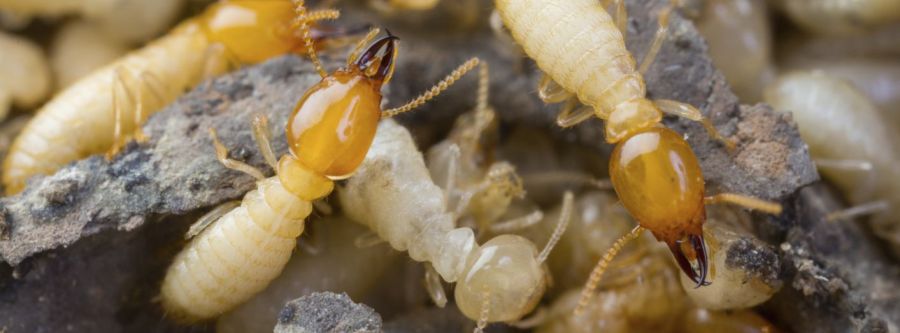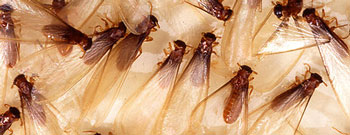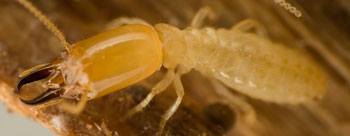The most common species of termite is the Subterranean Termite which can be found in almost every region of Victoria. Even buildings with steel framing and masonry walls are targets because of wooden door and window frames, cabinets and shelving within buildings.
Termites can enter a building without direct wood contact with the soil through mudding tubes which the termites construct. Termites can enter buildings through cracks, expansion joints, hollow bricks, concrete blocks, or around plumbing or service penetrations.
Any building, whether constructed with a concrete slab or sub-floor with stumps, can be a target for termite infestation.
Termite management involves reducing the chances that major damage is caused to your house by subterranean termites.FACT - Termites cause more damage to Australian houses than fire, floods and storms combined - damage that is not covered by household insurance!Termites avoid light and rarely come out into the open. Often they're found within timbers where they leave a wafer-thin layer to protect themselves from the outside environment, and conceal them from predators.

Termite Colonies
A subterranean termite colony can be quite large, consisting of a queen, king,
winged reproductives, soldiers, workers and supplementary king/queens.
Populations can exceed one million termites. Worker termites are small and creamy-white
in colour. They are the most numerous and the cause of all termite damage.
A property owner is unlikely to see termites as they remain concealed within the timber on which they are feeding, but in spring or summer on a humid night you may see swarming winged reproductives setting out to establish new colonies.
spring or summer on a humid night you may see swarming winged reproductives setting out to establish new colonies.
The reproductive form of termite can easily be confused with a winged-ant. In a building
infested with termites it is common to find discarded wings from the termite 'alates' in areas such as window sills or carpet edges.
Termites see your house as being nothing more than a

strangely shaped tree which is a food source.The termite colony source many feeding points by tunneling underneath
the ground generally within the first three foot of soil but may tunnel deeper than 9 foot depending on the water table.
Once timber is located the termites will then consume the timber converting the cellulose into carbohydrates often with the help of a micro-organism inside the gut which is called a
protozoa. The termites will also harvest protein from fungi grown within the humid termite nest and workings. With all termites working 24/7 as a well oiled house eating machine. If you suspect your property may have a live termite infestation or you would like to safe guard your home from very costly termite damage we encourage you to
If you suspect your property may have a live termite infestation or you would like to safe guard your home from very costly termite damage we encourage you to
call us on today to book a visual inspection or visit our Inspections web page for more information. 